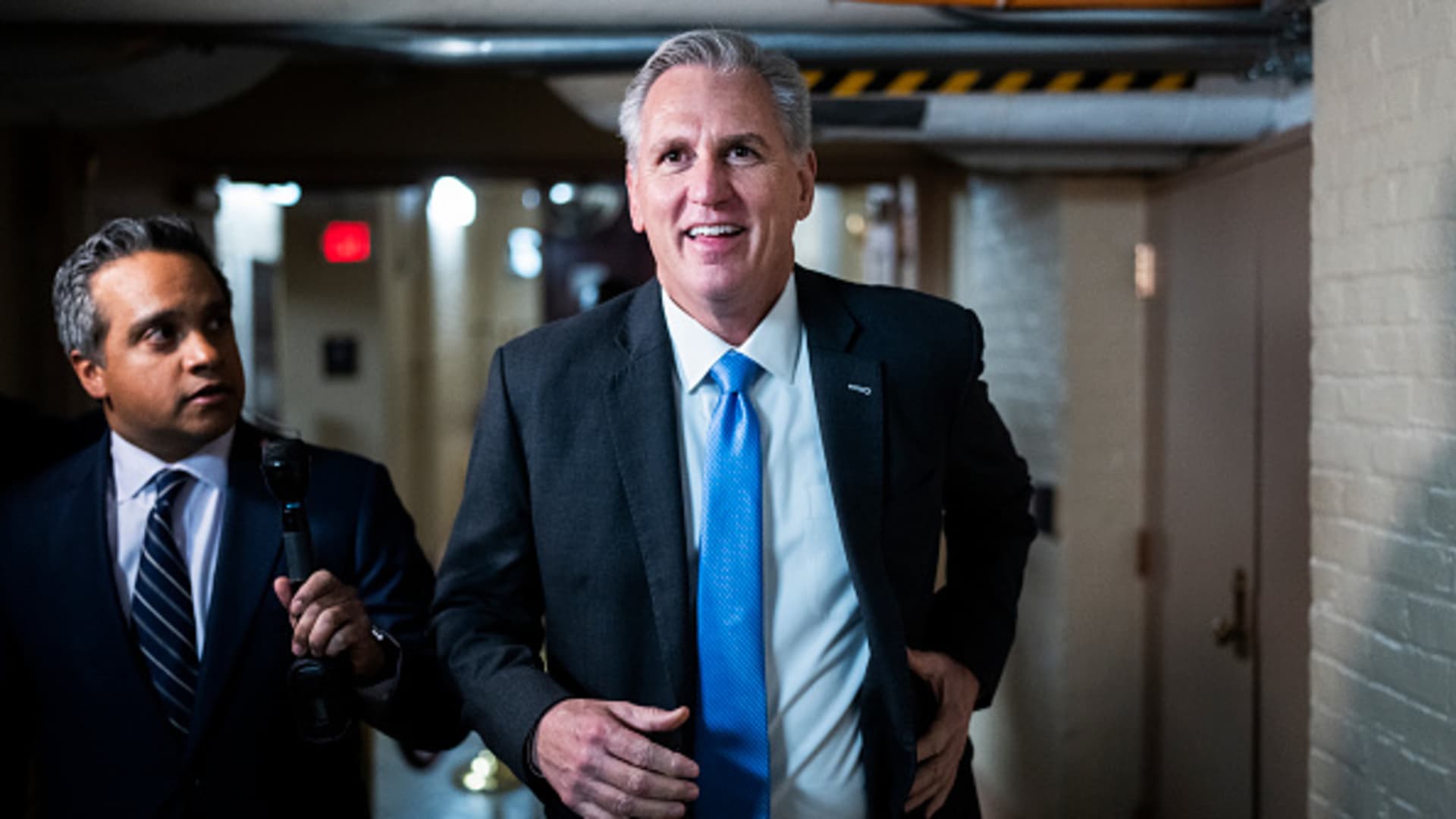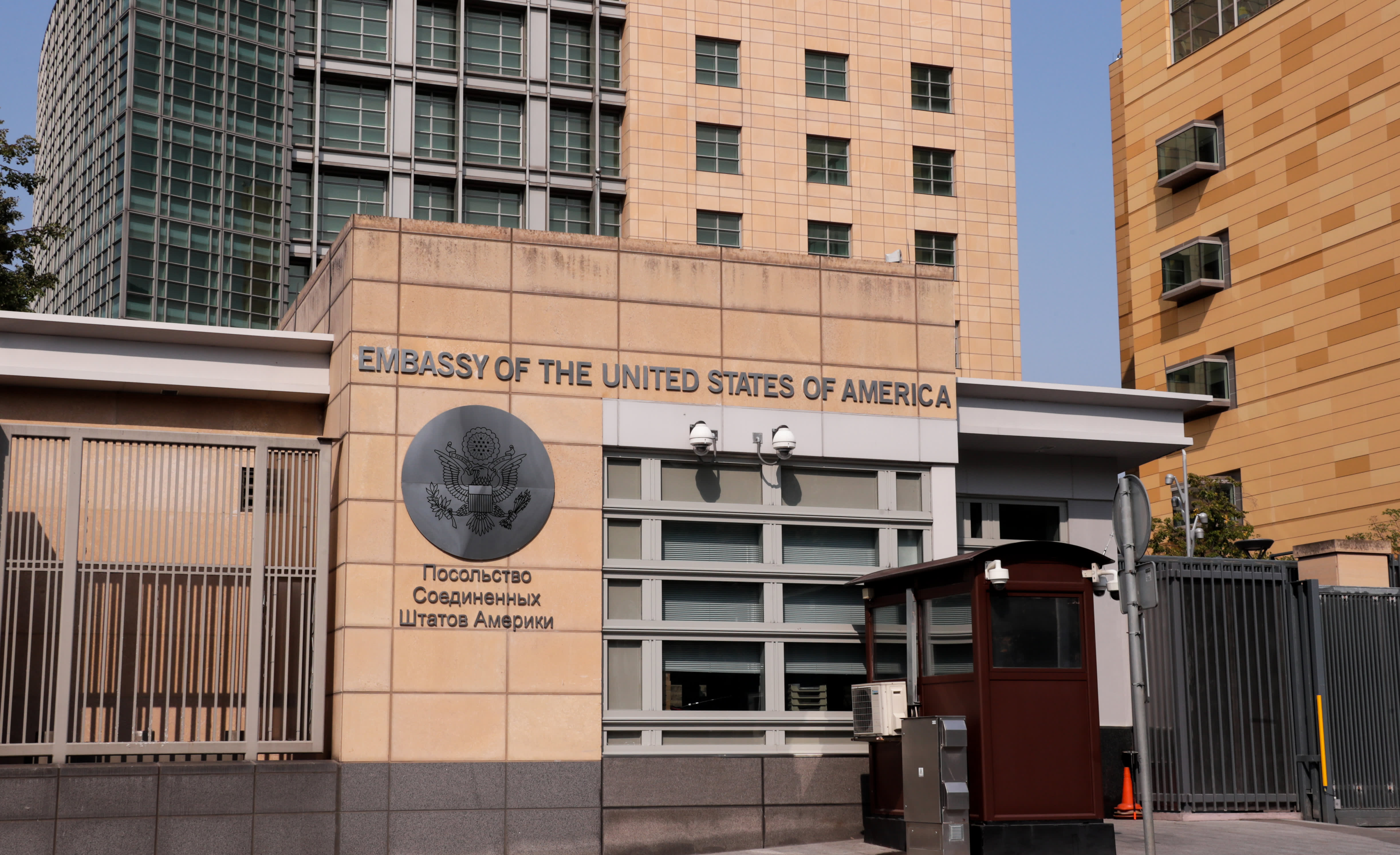GOP-led House creates a new committee to tackle threats from China, McCarthy's first big bipartisan win
The overwhelming 365-65 vote to create the China committee gave House Speaker Kevin McCarthy, R-Calif., a genuine bipartisan victory.

Speaker of the House Kevin McCarthy, R-Calif., is seen outside a House Republican Steering Committee meeting to select committee chairs in the U.S. Capitol Monday 9, 2023.
Tom Williams | Cq-roll Call, Inc. | Getty Images
WASHINGTON — Members of the U.S. House from both the Democratic and Republican parties voted overwhelmingly Tuesday to establish a new select committee to address the multifaceted threats that China poses to the United States.
The final tally vote was 365 in favor and 65 opposed, with all Republicans and 146 Democrats joining them to back the venture. The new panel will be called the House Select Committee on the Strategic Competition Between the U.S. and the Chinese Communist Party.
After a week that saw a historic intraparty Republican battle for the House speakership play out before cameras on the chamber floor, the China-committee vote offered a rare opportunity for House Speaker Kevin McCarthy, R-Calif., to notch a genuine bipartisan victory.
According to the resolution creating the new select committee, its powers will be largely investigative, not legislative. It will also be given jurisdiction to call witnesses and hold public hearings in connection with its probes.
There will 16 members on the committee, nine Republicans and seven Democrats. It will be chaired by Republican Rep. Mike Gallagher of Wisconsin, a leading voice in the GOP caucus on China issues.
It was unclear Tuesday which Democrats would join the panel, because committee assignments are still fluid on both sides of the aisle as the 118th Congress takes shape under a new Republican majority.
Speaking on the House floor Tuesday, Gallagher signaled the committee's bipartisan approach right from the top, leading off his remarks by quoting Democratic President Joe Biden's top diplomat.
"As Secretary of State Antony Blinken put it last year, China is the only country with the intent to reshape the international order and, increasingly, the economic, diplomatic, military and technological power to do it," Gallagher said.
He said the panel will expose the Chinese Communist Party's "coordinated whole of society strategy to undermine American leadership and American sovereignty, while working on a bipartisan basis and with committees of jurisdiction to look at long overdue commonsense approaches to counter CCP aggressions."
I have watched with consternation as our businesses' electronic supply chain has been increasingly dependent on China.
Bill Foster
Democratic Representative, Illinois
Gallagher said Republicans and Democrats will need to work together, "because that's the only way we're going to be successful over the long term."
Moments later, a senior Democrat, Rep. Jim McGovern of Massachusetts, said on the House floor he would vote for the creation of the panel, instantly giving it bipartisan bona fides that culminated in the massive Democratic support during the afternoon's vote.
Several Democrats followed McGovern, speaking in support of the new select committee.
"I have watched with consternation as our businesses' electronic supply chain has been increasingly dependent on China," said Democratic Rep. Bill Foster of Illinois.
Read more about China from CNBC Pro
But it was McCarthy's turn in the spotlight that was most memorable Tuesday, as the new speaker promised the committee would be serious and genuinely bipartisan, not just bipartisan for show.
"We want serious lawmakers," said McCarthy. "This isn't for somebody to go in and be viral to make some point. This is to work together as one Congress, on one of our greatest challenges for the future."
McCarthy continued, "You have my word and my commitment. This is not a partisan committee. ... I want this committee to last beyond who's in the majority, and never, ever be a partisan committee."
The creation of the new China committee highlights the rare ability of U.S.-Beijing issues to bring together lawmakers of all political stripes. This was also on full view during the presidential race, when both then-President Donald Trump and Biden campaigned on promises to get tough on China.

 Troov
Troov 































